I usually don’t review movies that are still exclusively playing in theaters — really, for no better reason than it’s hard to get the screen shots I usually utilize — but Get Out is Important (with a capital “I”) enough to warrant an exception. Between its artistic merit and its commercial success, it’s simultaneously the Citizen Kane of black horror movies and the Titanic of black horror movies.
The plot is deceptively simple: black guy Chris (Daniel Kaluuya) accompanies white girlfriend Rose (Allison Williams) to her wealthy family’s home, where he receives a warm reception from her parents (Bradley Whitford and Catherine Keener) and their white, upper-crust friends, but there’s a strange undercurrent that makes Chris uneasy — especially when the only other black people are two servants (Betty Gabriel and Marcus Henderson) and an older woman’s boy toy (Lakeith Stanfield), all of whom act, well, “off.” Insanity follows.
If you’re a black guy in America, chances are you’ve been in a situation where you’re introduced to a white guy who immediately greets you as “bro” or “dog” (or, for black women, I assume the equivalent would be “girl” or “guuuurl”), and you have to make a split-second decision about whether he’s fucking with you or if this is just a cluelessly earnest attempt to relate.
In order to avoid becoming a seething ball of perpetual rage, I tend to give such people the benefit of the doubt and assume the latter, but the mere fact that this thought pops into your head taints the rest of the conversation — perhaps even the rest of the function at which you’re meeting — because it’s an instant affirmation of your “otherness.” We may otherwise have a perfectly fine interaction, but it’s now clear in my mind that you view me as intrinsically different from you and from most everyone else in what is probably a mostly-white gathering.
An acknowledgment of difference in and of itself isn’t necessarily troublesome (granted, if I don’t know you or where you’re coming from, rest assured you will be eyed suspiciously), but too often it feels like it comes from a place of fetishized exoticism — feeding off of longstanding perceptions of athletic superiority (young people: Google “Jimmy the Greek”), rumors of sexual prowess, plus pop culture trendsetting and general concepts of “coolness.” It’s an unappetizing side dish to an era some have deemed “post-racial” (a distinction disproven by the recent highly publicized incidents of police brutality, racially motivated mass shootings and the events surrounding Trump’s ascension to the Presidency).
This subtle spectatorship may be as hard for black people to explain as it is for well-meaning white people to recognize, and that’s where Get Out proves so profound. It exaggerates modern racial dynamics (I hesitate to use the term “racism,” which feels a bit reductive for interactions that run a gamut of situations and intentions.) to the point of satire to make the subtleties ludicrously identifiable, turning racial fetishism into a sort of cult. It’s a marvelous blend of the sort of social commentary and speculative fiction that made the original Twilight Zone such an enduring classic, and it satirizes racial roles in a similar vein as The Stepford Wives‘ sendup of gender roles back in the ’70s.
Rather than focus on the “easy target” of overtly racist, cross-burning Southerners, Get Out tackles the relationship between black people and whites who are outwardly progressive-minded — they LOVE black people! — but still harbor some troublesome views about race that keep minorities at a safe distance.
Of course, the social message of the movie wouldn’t carry much weight if it wasn’t so well made. It’s not scary so much as it is tense and unnerving, its paranoid horror elements handled well by first-time writer-director Jordan Peele (of Key & Peele fame, which has led some to label it a horror-comedy, but it’s not; there’s only one comic relief character, standard for genre fare) — although sadly, I found that the trailer gave away WAY too many of the best moments. That doesn’t take away from the wonderful performances, though — particularly Kaluuya and Gabriel (The Purge: Election Year) as housekeeper Georgina, whose repeated utterance of just the word “No” in one memorable scene is a whirling dervish of shifting tones and connotations, providing one of the most evocative moments in the film.
I’m sure there’s a certain segment of the white population (ironically, probably not the type who are villainized in the film) who will watch Get Out (or more likely, NOT watch it and make judgments anyway) and call it hateful or “reverse racism” or ask what if someone made a movie with black people victimizing whites, but these are the same people who question why there’s a BET or a Black History Month, who don’t “get” why transgender people might want to use a different bathroom and who don’t see anything wrong with there being an NFL team with the name Redskins. They can’t venture outside of themselves enough to empathize with the plight of others who might have had a different life experience than them. It’s the sort of stubborn ignorance that unfortunately can only be overcome from within. As good as it is, a movie like Get Out won’t change the minds of people whose shallow world view won’t allow them to see it in its allegorical context.
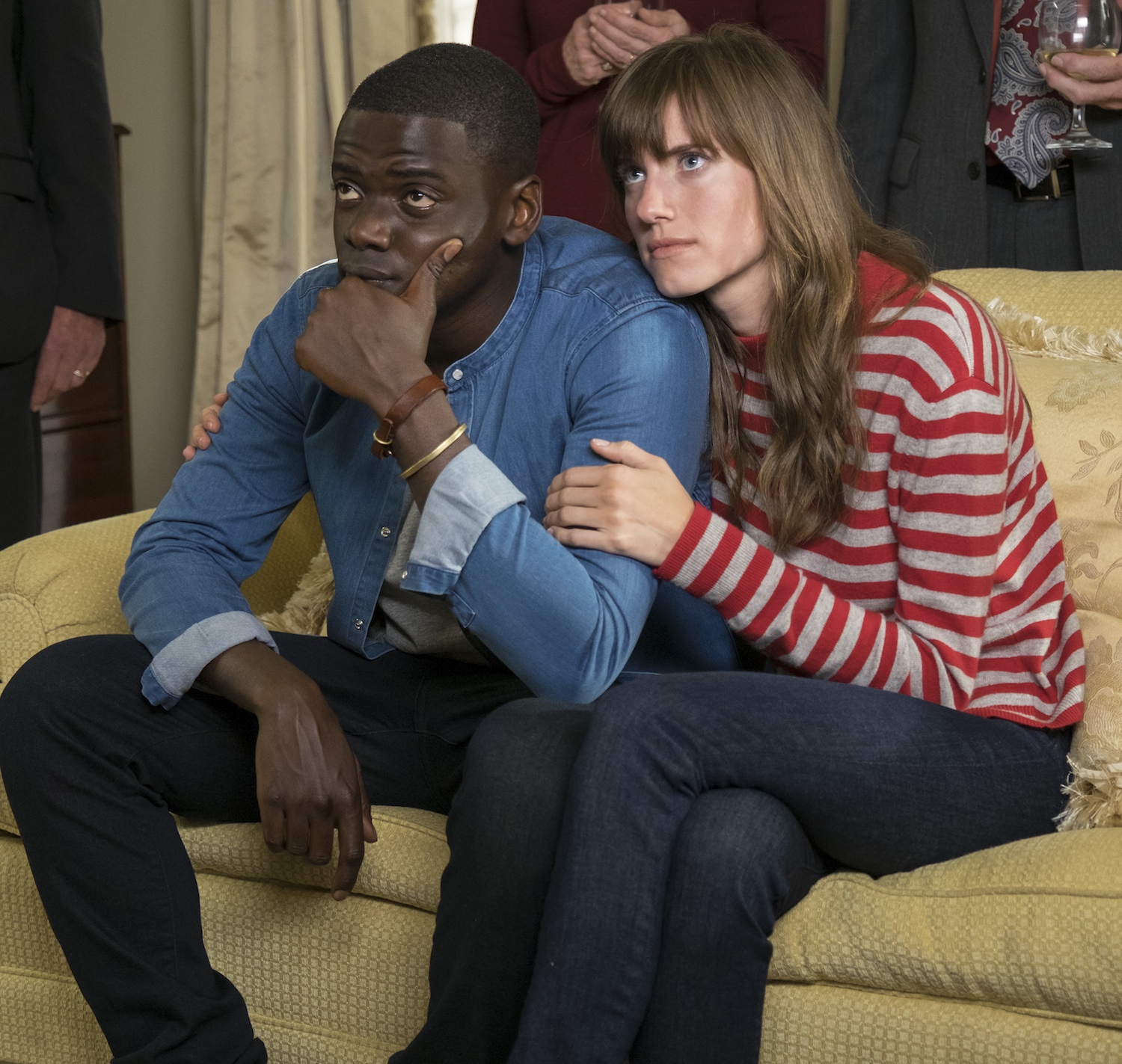
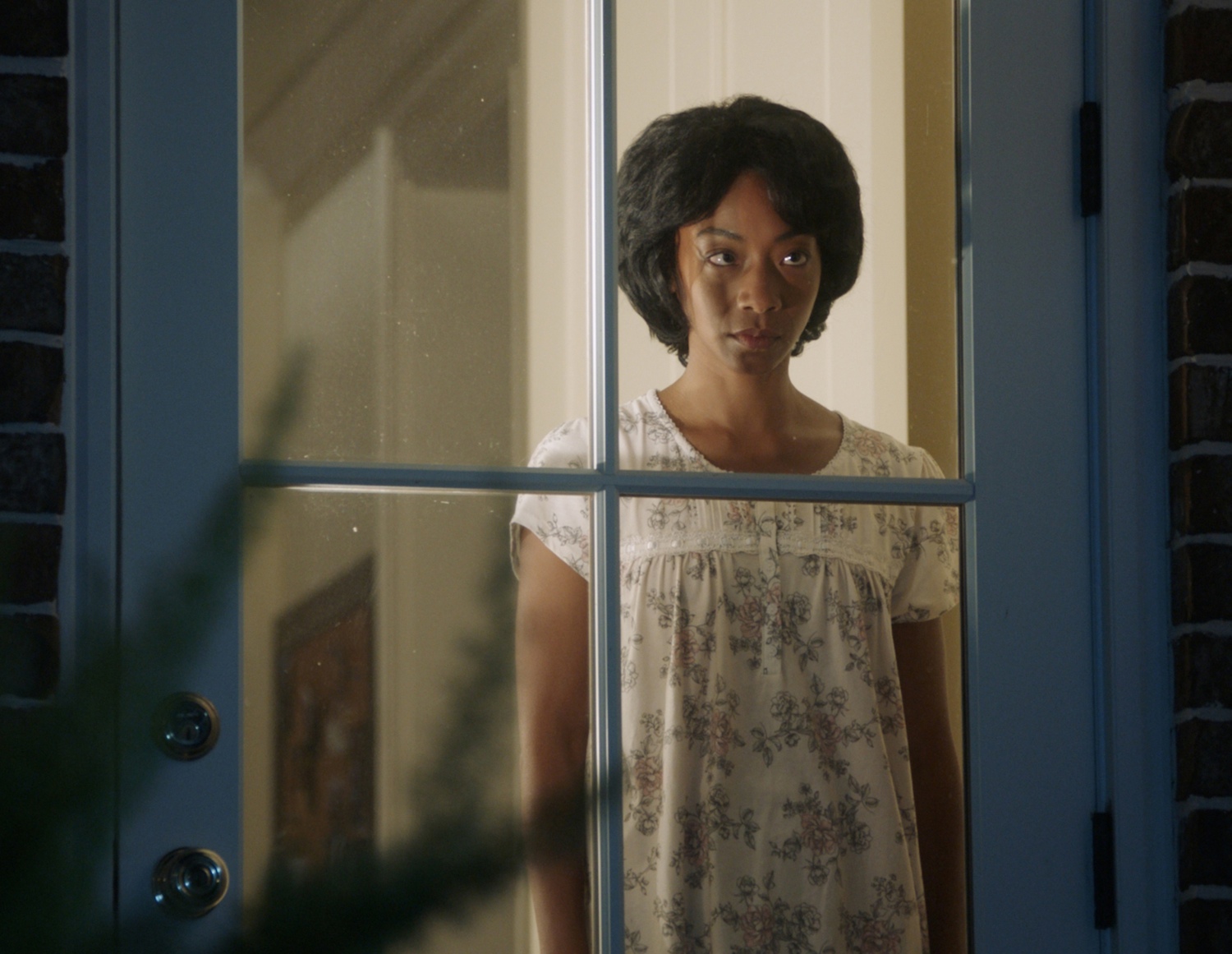
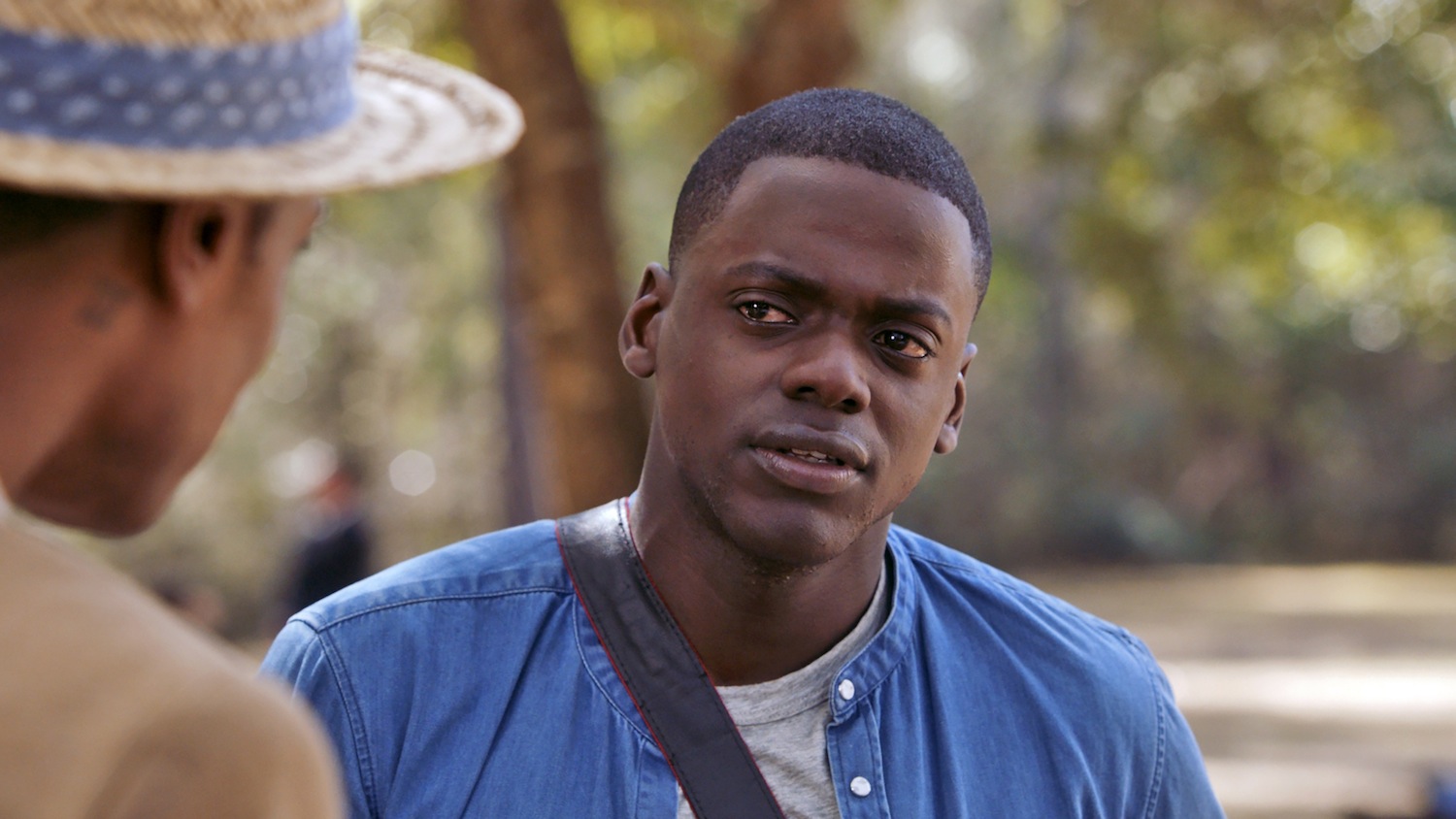
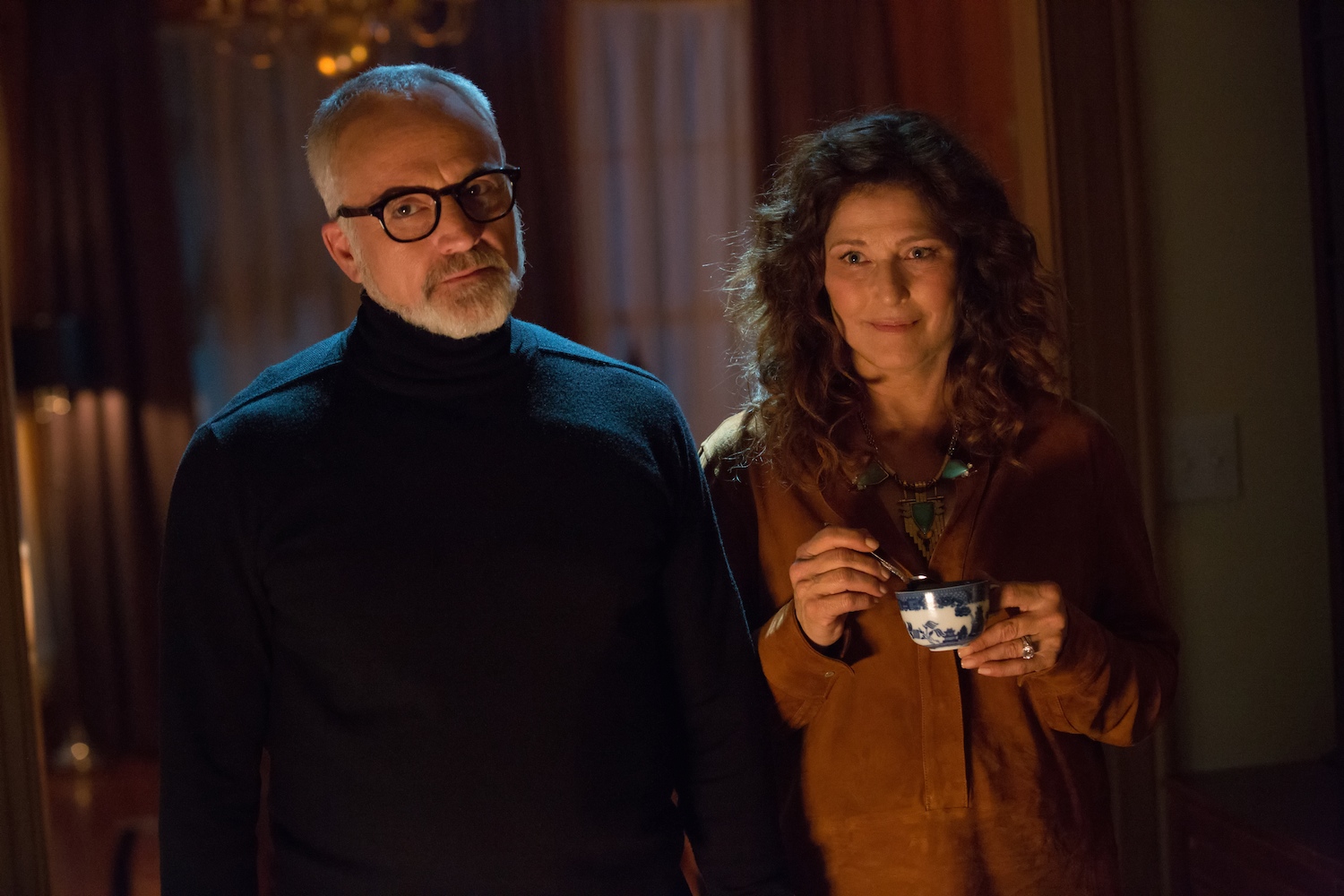
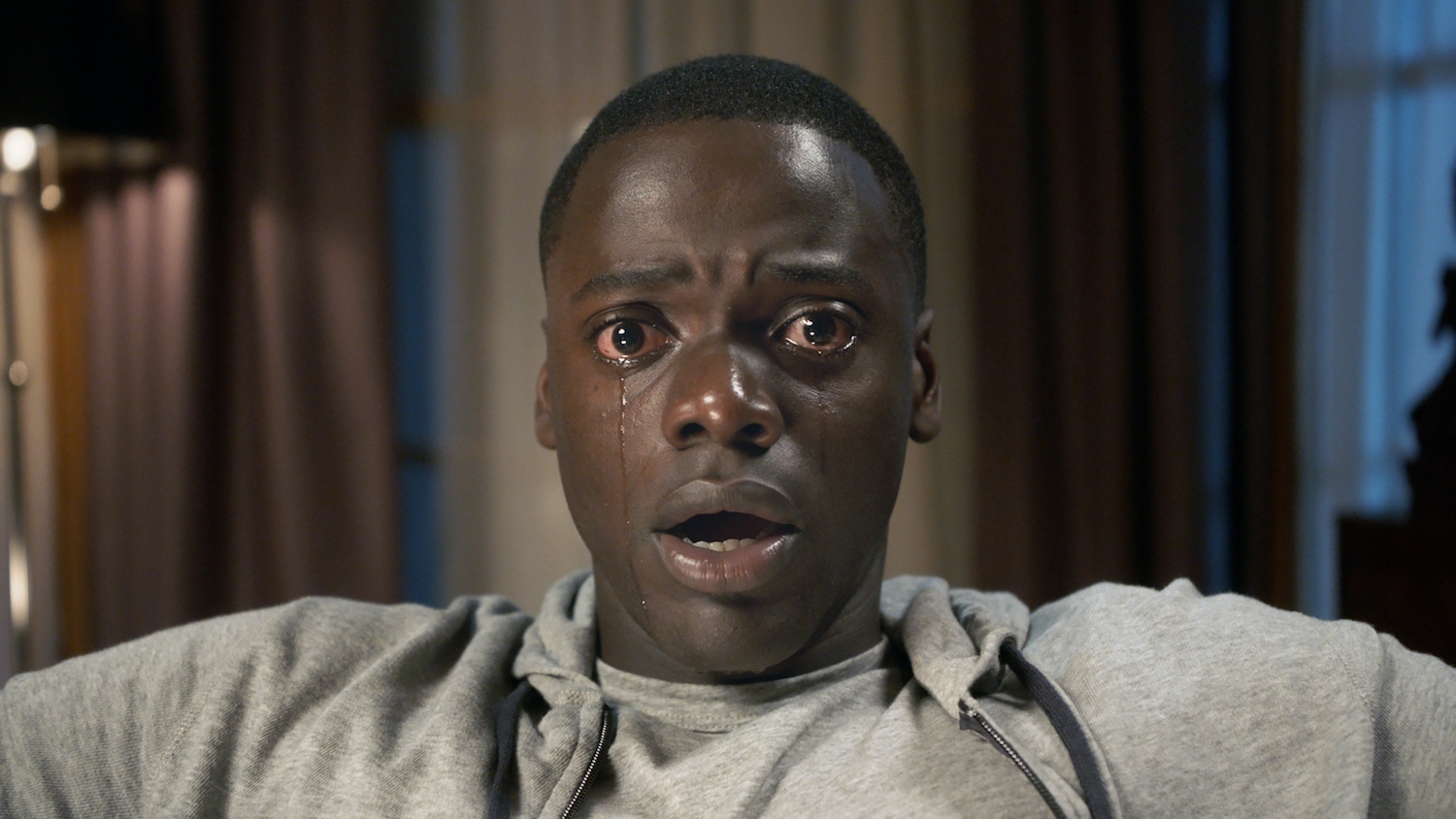

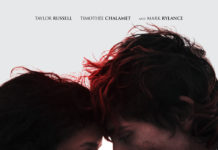


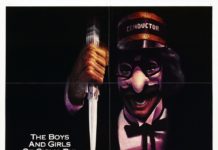

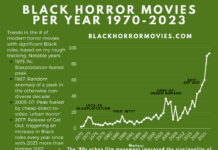

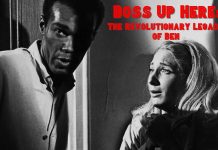
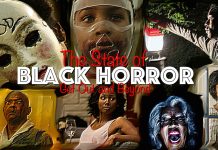
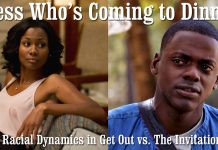
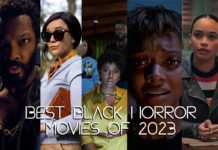
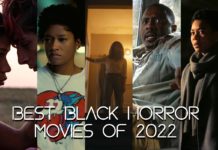



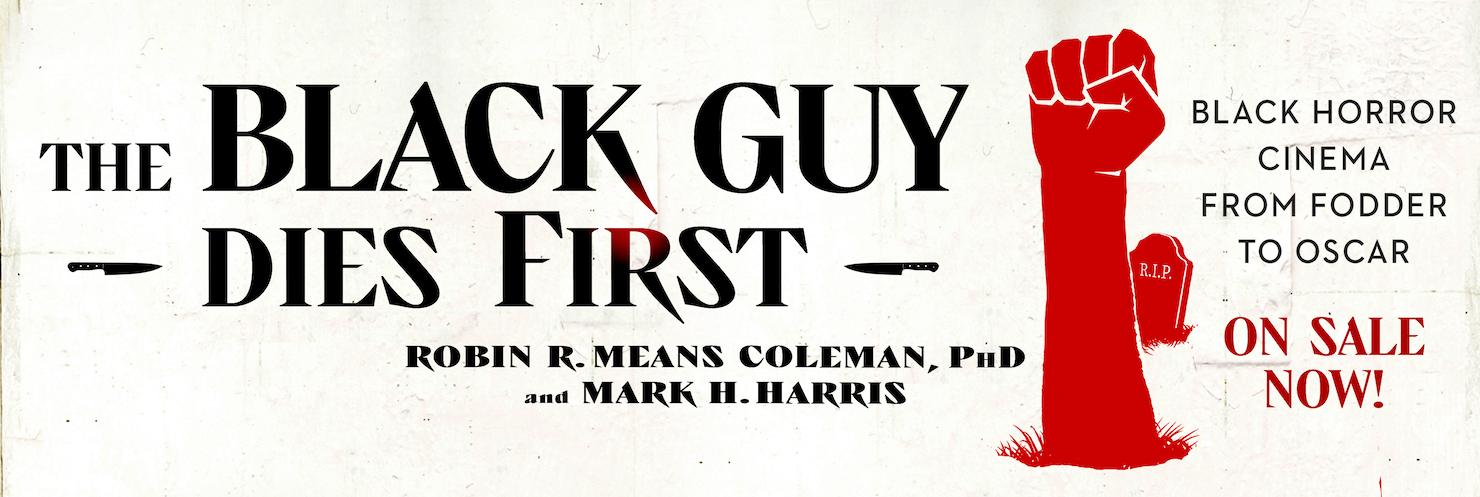
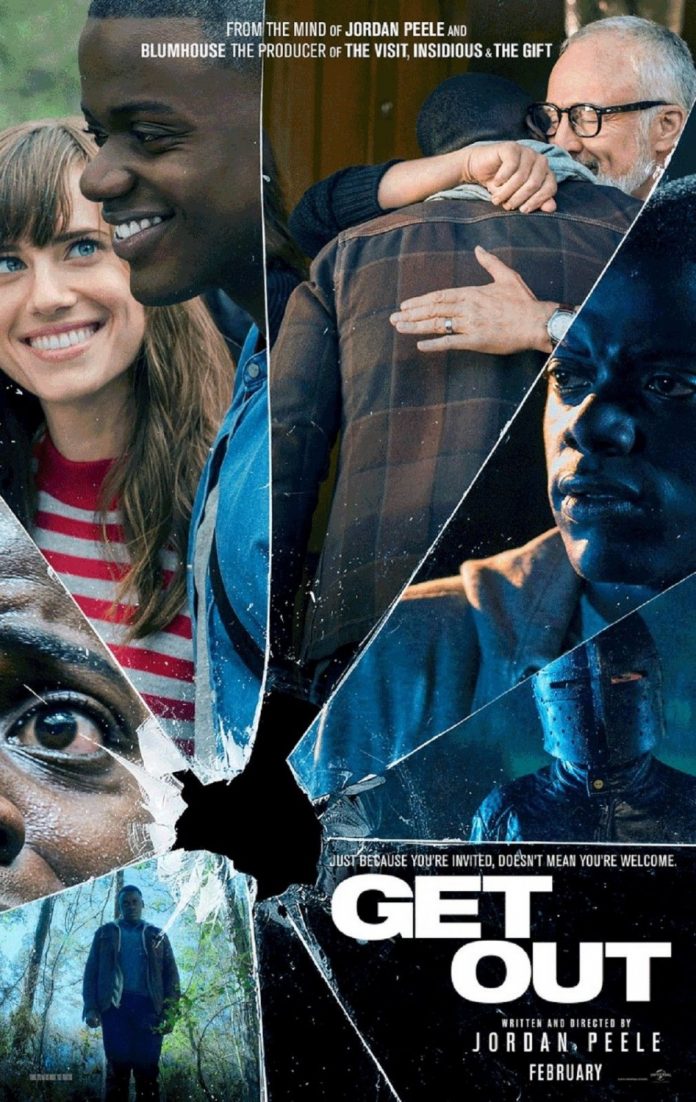


I am so glad this movie got a review here.